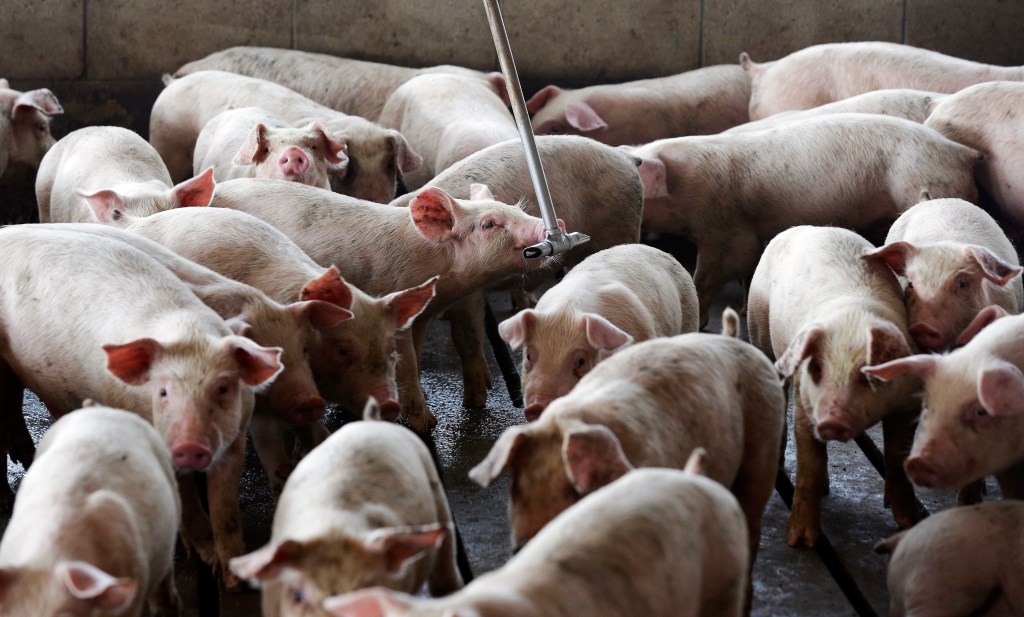PINK HILL, North Carolina — The tropical storm that began as Hurricane Michael swept through eastern North Carolina on Thursday, pouring more rain on a state already struggling to handle its wettest year on record. But it’s what that water can pick up along the way that has environmental groups and residents in low-lying watersheds worried.
Pig shit.
Videos by VICE
Eastern North Carolina is home to the counties with the densest concentration of hogs in the U.S. When storm season hits, hog farms are some of the most vulnerable places in the state because most hog farmers here dispose of their hog waste in massive open-pit lagoons.
Torrential rains can send the hog waste over the top of the lagoon, where it washes into rivers and streams. Sometimes, the lagoons themselves breach, and hog waste spills into the groundwater. During Hurricane Florence last month, both happened, resulting in at least 50 flooded lagoons and two breaches.
The North Carolina Department of Environmental Quality is still testing rivers and swamps to see if a measurable amount of waste reached the watershed.
Catastrophic flooding aside, neighbors say hog farms also present a regular nuisance to their quality of life, even when skies are blue. That’s partly because of the lagoons but also because of how hog farms traditionally dispose of their waste: letting the solids settle to the bottom and spraying the floating liquid effluvia onto their fields.
That means hog feces, hog urine and hog blood are often sprayed in clouds just a few yards from someone’s house. For Elsie Herring, that means the stink is also constant.
“We don’t come outside much, you know. And we don’t open the windows because the odor — you can’t keep the odor out, whether you open the windows or not, you just can’t,” said Herring, perched in a rocking chair on her pink house’s front porch as another spray cloud blew onto her property. “You can smell it now, can’t you?”
Herring is one of 500 plaintiffs suing the Chinese-owned Smithfield Foods, the world’s largest pork producer, with partner farmers in the U.S. The plaintiffs claim Smithfield’s waste-management practice of storing hog shit in lagoons and then spraying it onto fields severely reduces their quality of life.
Nearly every hog farmer in North Carolina is a contract farmer, meaning the agribusiness corporations own the pigs and the farmers own the waste.
Morris Murphy, who has 15,000 head of Smithfield hog on his land in Duplin County, says the nuisance lawsuits are baseless. While hog farms do smell, Murphy says, it’s not bad enough to affect his neighbors. His lagoons are open pits, and on a sunny morning in mid-October, didn’t present much of a smell, even just a few feet away.
He’s not being sued, but his friends are. He says at least one fellow hog farmer had his hogs taken back by Smithfield after a lawsuit.
Hog farmers say they can’t afford to operate without open-pit lagoons, and agribusiness conglomerates haven’t shown much willingness to pay to cover them — an expensive proposition that includes a whole separate system to deal with the bio gasses produced by the covered hog poop.
“Personally I think the system’s fine,” Morris said. “Someone needs to come here and prove to me that what I’m doing is bad for the environment before I feel like I need to change it.”




